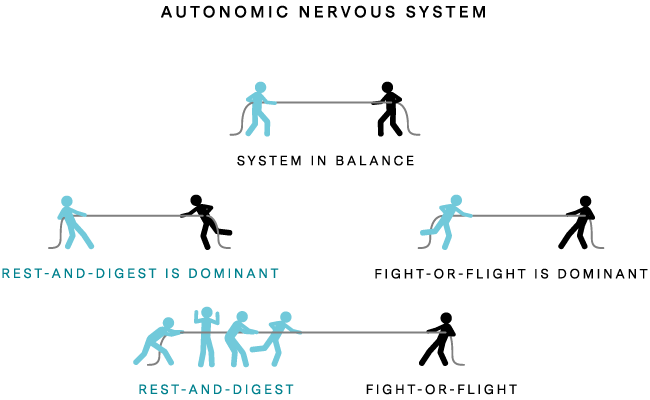.webp)
Maintaining overall health and well-being necessitates practicing stress management. High blood pressure, heart disease, depression, and anxiety are just a few of the mental and physical health issues that can arise from prolonged stress.
Stress management strategies include:
- Meditation or deep breathing exercises can help you relax your body and mind.
- Get moving on a regular basis because exercise can relieve stress and improve mood.
- Make sleep a priority and ensure that you get enough restful sleep each night.
- Make an effort to eat a healthy diet full of fruits, vegetables, and lean protein.
- Talking with a therapist, reading, or listening to music are all good ways to deal with stress.
- Make sure to set aside time for activities you enjoy and practice time management.
- Stay in the moment and practice mindfulness.
- Establish a support network and connect with friends and family.
- When you're feeling overwhelmed, learn to say no and make time for yourself when you need it.
- If you're having a lot of stress or if it's getting in the way of your day-to-day activities, get help from a professional.
Managing Anxiety: The Link Between Body and Mind
.webp)
It can appear as though stress is solely a mental issue when thoughts of stress consume your day. Because your brain and body are inseparable, stress manifests as both emotional and physiological symptoms.
The autonomic nervous system (ANS) is the one response system that your body and brain share for all stressors, whether you're running from a lion or getting ready for a work presentation.
You can develop awareness and identify practices that transform your stress response into a reasoned response by understanding how your body uses the ANS to respond to various situations.
Stress Vs Rest
The ANS is a tug-of-war between two subsystems that operates in a similar manner: your parasympathetic nervous system and activation (sympathetic nervous system) systems. Both control vital bodily functions like breathing, digestion, and heart rate.
The parasympathetic nervous system acts as your rest-and-digest network during calmer moments, while the sympathetic nervous system is well-known as the driver of your activating, fight-or-flight response.
Based on messages from your brain and spinal cord, both systems raise and lower their activity levels. These systems can be active simultaneously or one can take control of the other and rule it.

They set off a chain of changes in your body when they are activated:
There are some rest-and-digest functions that completely cease when your fight-or-flight system begins to take over, while others simply slow down.
There are multiple players in your rest-and-digest system, such as your heart, lungs, and liver. Some parasympathetic players give up if your fight-or-flight system takes over (for example, your digestion slows down while you're running). Others might employ a different strategy; For instance, in an effort to cool down before a jog, your body will change how it regulates your temperature and move blood from your internal organs to your skin.
.webp)
Finding Balance
Stress levels in life naturally fluctuate. When your body remains in a stressed-out, fight-or-flight state, it can have a negative impact on your mental state, slow your recovery time, and weaken your immune system.
Our ANS was made to help us deal with short bursts of high-intensity stress (like running from a predator), but our modern lifestyle has a lot of chronic stressors that never go away (like job pressure, trying to balance work and kids, not getting enough sleep, and constantly being distracted by devices).
All that matters is balance. It is essential to your survival ability to respond to stress and maintain your body's equilibrium that your fight-or-flight system be in a state of constant activation as well as inactivity.
Managing your stress
Because our ANS acts involuntarily and reflexively, we frequently are unaware of its tug-of-war. You can use strategies to restore equilibrium or regulate your response to stress by becoming more in tune with its physiological effects.










Thanks for reading my blog ❤️